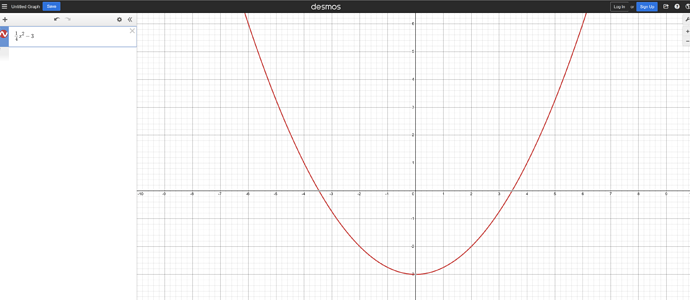- B
- D
- C
- A
1- B
2- D
3- C
4- A
1.) B - ‘x’ is being directly altered, so it is a curve.
2.) D - Just defines ‘y’, so it is a horizontal line.
3.) C - value of ‘y’ changes over time as ‘x’ changes, but ‘x’ is not altered, so slope.
4.) A - Only ‘x’ has a definition, so vertical.
1 - B
2 - D
3 - C
4 - A
- B
- D
- C
- A
Was surprised how easy it was to identify them.
Here’s my answers for the Linear Equations challenge:
- B
- D
- C
- A
It wasn’t too bad if you focus on the easy ones first like no. 4, or check something easy like x/y intercepts!
My anwers and reasoning behind it
1 - there’s x^2 so it should be parabola → B
2 - constant value, so → D
3 - linear x, and look’s like y = mx + c equation → C
4 - now that’s weird guy, so weird anwer not from our world → A
1 = B
Exponent means it can’t be Linear
.
2 = D
Constant value for y
.
3 = C
Is a Linear Equation
.
4 = A
Constant value for x
1 B
2 D
3 C
4 A
equation 1 = B. Because we are squaring x and that means why get a curved line
equation 2 = D. ln(4) is ~1.386 and we don’t have x factor so it’s y = 1.386 and it’s horizontal line
equation 3 = C. x is not manipulated by anything so it means we have a slope
equation 4 = A. 1 we only have the intercept point of the X axis means that it’s a vertical line (undefined)
1 = B - it has an exponent which we know creates a curve
2 = D - fits the y = c equation of a horizontal line
3 = C - fits the y = mx + c style equation of a straight line
4 = A - fits the y = d equation of a vertical line
- B
y is a curved because we are raising x to the power of 2 - D
there is no x and we are only assigning y, so its horizontal - C
we aren’t messing with x, so we get a sloped line - A
since we aren’t doing anything with y and we only assign x, we get a vertical line
I had 2 of them wrong. If I had remembered that an exponent will cause curves I would have had them right.
Could you please explain below one?
y = (x^2 / 4) – 3
I could not get the parabolic graph.

